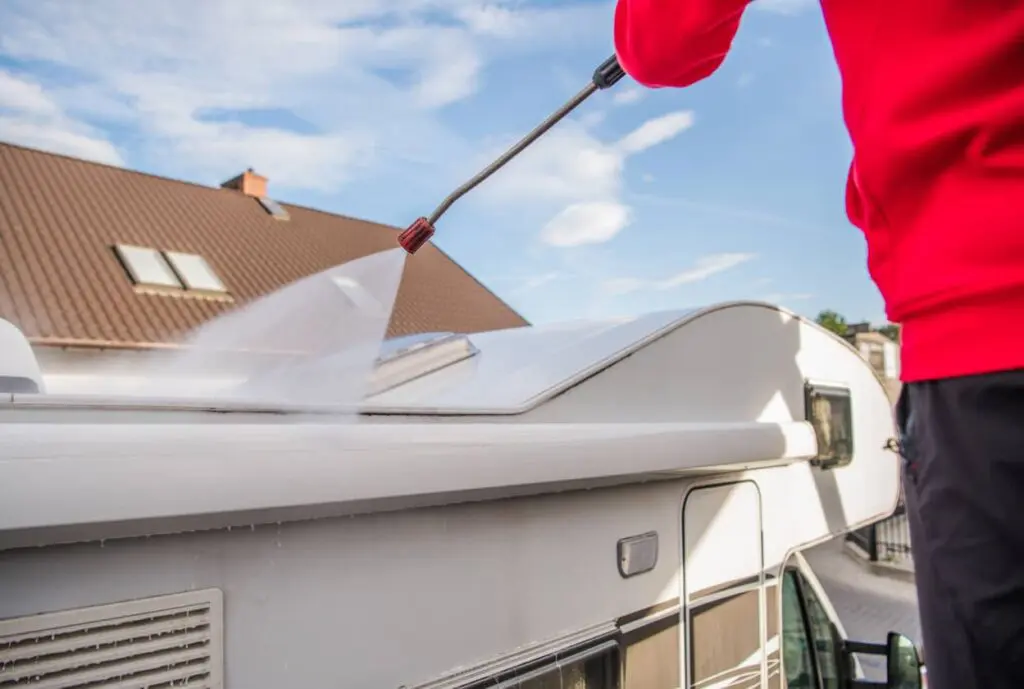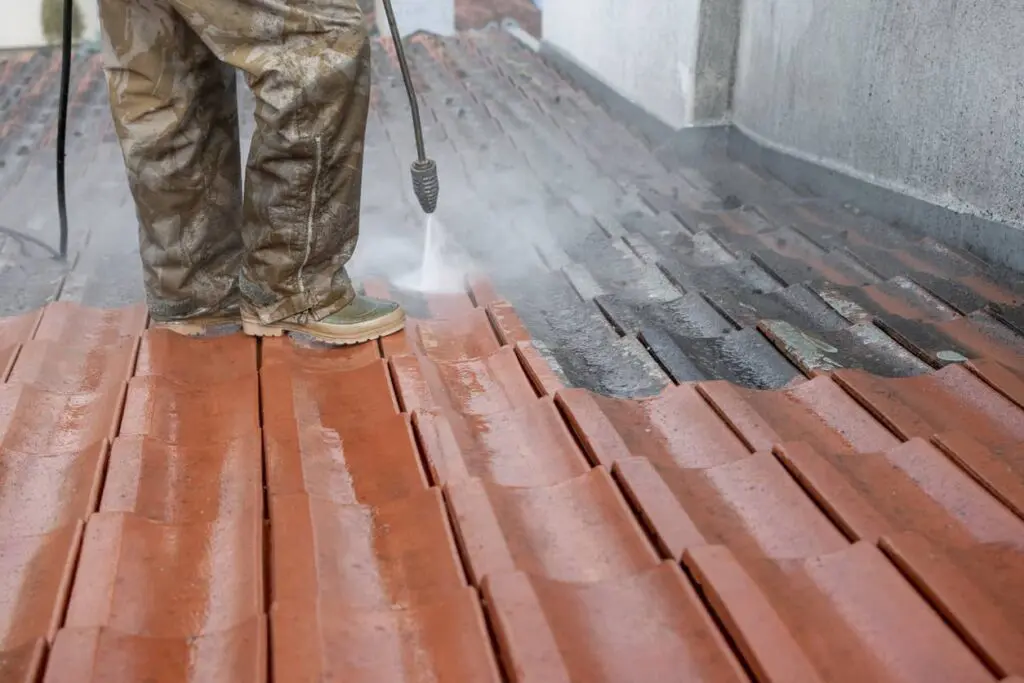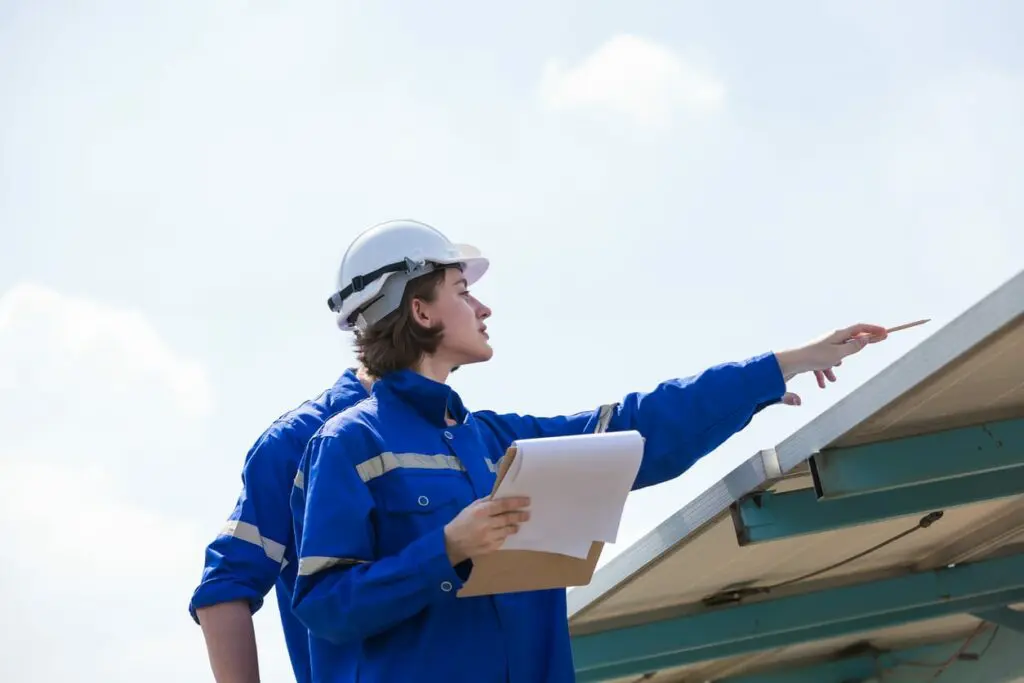Roof washing is an essential service that can breathe new life into the appearance and longevity of your home’s roof. Over time, roofs can accumulate dirt, algae, moss, and other unsightly elements that not only diminish their visual appeal but can also lead to potential damage. By neglecting regular roof cleaning, you might be unknowingly allowing for premature wear and tear, which could result in costly repairs. The cost of roof washing can vary widely depending on factors such as the size and pitch of the roof, the type of roofing material, the level of grime and growth, as well as the specific methods used for cleaning. Understanding these variables is crucial for obtaining accurate pricing and ensuring that your roof remains both attractive and durable for years to come.
Factors Affecting Roof Washing Costs

Roof size and complexity
The size and complexity of your roof are fundamental factors that directly influence the cost of roof washing. Larger roofs naturally require more time, resources, and labor to clean. The surface area to be covered determines the amount of cleaning solution and equipment needed. Moreover, the complexity of the roof’s design can impact the cost. Roofs with multiple levels, steep slopes, intricate architectural features, or difficult-to-reach areas may require additional effort and specialized equipment, increasing the overall cost of the service.
Roof material
The type of roofing material you have significantly impacts the cleaning process and the associated costs. Different materials require specific cleaning techniques and solutions to avoid damage. For example, asphalt shingles, metal panels, clay tiles, and cedar shakes all have unique characteristics that necessitate tailored cleaning approaches. Delicate materials might require more careful handling, which could lead to a higher cost due to the use of specialized products and methods.
Current condition of the roof
The existing condition of your roof plays a substantial role in determining the cost of roof washing. Roofs that have accumulated years of dirt, algae, moss, or other debris may require more intensive cleaning efforts. In such cases, additional treatments and thorough cleaning processes might be necessary to restore the roof’s appearance and structural integrity. On the other hand, roofs with less buildup due to regular maintenance may require less time and effort to clean, resulting in a relatively lower cost.
Different Roof Washing Methods

There are two primary methods commonly used for roof washing: pressure washing and soft washing. Each method offers distinct advantages and is suitable for different types of roofs and cleaning needs.
Pressure washing
Pressure washing involves using high-pressure water jets to remove dirt, debris, moss, algae, and other contaminants from the roof’s surface. While effective in removing stubborn buildup, pressure washing should be used cautiously, especially on delicate roofing materials. Excessive pressure can cause damage, dislodging shingles or tiles, and potentially compromising the roof’s integrity. Pressure washing is better suited for more robust roofing materials like metal or concrete tiles, where the surface can withstand the force without harm.
Soft washing
Soft washing is a gentler and more versatile method that relies on a combination of low-pressure water and specially formulated cleaning solutions. The solutions are designed to break down and kill algae, moss, and other organic growth, allowing them to be easily rinsed away without the need for high-pressure water. Soft washing is particularly suitable for roofs made from more delicate materials, such as asphalt shingles, cedar shakes, or clay tiles. This method minimizes the risk of damage to the roofing material and is an excellent choice for maintaining the roof’s appearance and longevity.
Average Cost Ranges for Roof Washing
Basic roof washing cost estimates
On average, basic roof washing costs can range from $250 to $600 for a smaller, uncomplicated roof. This might include simple cleaning methods and standard materials.
Additional cost considerations
However, keep in mind that the cost can increase based on various factors:
- Roof Size and Complexity: Larger roofs or those with complex designs can cost more due to the increased labor and time required for thorough cleaning.
- Roof Material: Delicate materials might require specialized cleaning solutions, which can affect the cost.
- Cleaning Method: Different cleaning methods, such as pressure washing or soft washing, can have varying costs. Soft washing might be more expensive due to the specialized cleaning agents involved.
- Extent of Cleaning: Roofs with heavy moss, algae, or other growth might require extra treatments, which can raise the cost.
- Location: Prices can also vary based on regional factors, such as the cost of living and local market rates for such services.
- Additional Services: Some companies might offer additional services like gutter cleaning or roof inspections. These can add to the overall cost.
- Accessibility: Difficult-to-reach roofs may require special equipment or safety measures, impacting the cost.
Hiring Professionals vs. DIY Roof Washing

Benefits of hiring professionals
- Expertise and Experience: Professional roof washing companies have trained technicians with experience in handling various types of roofs and contaminants. They understand the nuances of different roofing materials and have the knowledge to choose the appropriate cleaning method and solutions.
- Safety: Roof washing can be hazardous, especially if you’re not accustomed to working at heights. Professionals are equipped with the necessary safety gear and equipment to ensure their safety and the safety of your property.
- Effective Cleaning: Professionals have access to specialized equipment and commercial-grade cleaning agents that are more effective in removing tough stains, algae, moss, and other contaminants. Their expertise ensures a thorough and long-lasting clean.
- Prevention of Damage: Improper DIY techniques, such as using excessive pressure or harsh chemicals, can damage roofing materials and lead to leaks or other structural issues. Professionals know how to clean roofs without compromising their integrity.
- Time and Convenience: Roof washing can be a time-consuming task, especially if you’re not familiar with the process. Hiring professionals allows you to save time and focus on other priorities.
Risks of DIY roof washing
- Ineffective Cleaning: Without proper knowledge and equipment, DIY roof washing may not effectively remove all contaminants, leaving your roof susceptible to future damage.
- Safety Concerns: Working on a roof without proper safety equipment can lead to accidents and injuries. Falling from a roof can result in severe harm.
- Damage to Roofing Material: Incorrect pressure, improper cleaning solutions, or aggressive scrubbing can cause irreversible damage to roofing materials, leading to leaks and further expenses.
- Environmental Impact: Improper disposal of cleaning agents can harm the environment and local ecosystems.
- Lack of Insurance Coverage: If you damage your roof or property during DIY roof washing, you may not have insurance coverage to address the costs.
Tips for Finding Reliable Roof Washing Services
When searching for reliable roof washing services, consider seeking recommendations from friends, family, or local community groups for trusted professionals. Research online reviews and ratings to gauge the reputation of potential companies. Ensure the company is licensed, insured, and offers clear cost estimates. Request references and inquire about their experience with various roofing materials and cleaning methods. A reputable service will provide transparent communication, safety measures, and a proven track record of effective and careful roof cleaning.
Cost-saving Strategies for Roof Washing
To save on roof washing costs, start by comparing quotes from multiple reputable providers to find competitive pricing. Opt for routine maintenance to prevent heavy buildup, reducing the need for intensive cleaning. Consider bundling services like gutter cleaning with roof washing for potential discounts. DIY preventative measures, such as trimming nearby trees to reduce shade and moisture, can minimize algae and moss growth, prolonging the time between professional cleanings.
Conclusion
Roof washing stands as a pivotal maintenance task, safeguarding both the aesthetic appeal and structural integrity of your home. Professional roof washing services offer expertise, safety, and effective results, crucial for preserving your roof’s longevity. As you contemplate the right approach, take into account your unique requirements, budget, and the specific demands of your roofing material. Making an informed decision will not only enhance the curb appeal of your property but also contribute to the overall well-being of your home for years to come.
